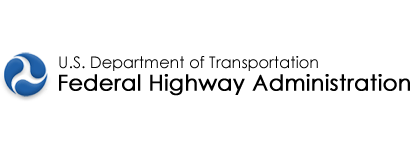
1200 New Jersey Ave., SE
Washington, D.C. 20590
December 15, 2017
In Reply Refer to: HIN
Dear Tribal Leaders,
In keeping with the communications plan we presented at this fall's National Tribal Transportation Conference, we held two webinars on December 6th and 7th, to introduce the selectee for the Tribal Technical Assistance Program (TTAP) Center - the University of Virginia's (UVA) Center for Transportation Studies. We are currently working with the Center to develop a training plan which we will present to you in February when the Center opens its doors and begins offering training and providing technical assistance.
During the webinars, we had an engaged audience that asked numerous questions on the Center and I'd like to recap some of the questions and our responses. There were multiple questions on whether or not all Tribes would have to go to Virginia to receive in-person training. That is decidedly not the case. UVA is administering the program, hosting the web-based and distance training that will be available to all Tribes all the time, and coordinating/scheduling the in-person training. The in-person training will take place in the field, it will be delivered to you. One of the main features of this model is the reduction of physical locations and all the overhead and cost involved; reductions in cost that will be transferred to delivering more training and technical assistance to you. The only two physical locations will be the Center at UVA and the Roads Scholar location in Oklahoma (exact location is still in negotiation). All the personnel involved in delivering training and technical assistance will be operating, in essence, from their home base. There were questions on funding for the Center- the Center is funded for two years for $4.66 million dollars - the exact same amount of funding that was provided, in aggregate, to the TTAP over a two-year time frame.
There were questions on whether or not the TTAP was comingled with UVA's Center for Transportation Studies - it's not; it is a separate program, separately funded and dedicated to training and technical assistance to the Tribes. There were questions on the newly designed Roads Scholar program -this program will be a combination of distance learning and in-person equipment operation for certification. To gain the certification individuals will have to travel to Oklahoma. Those were just some of the questions. We are extracting the questions we have received during the webinar and will be placing a consolidated list of questions and their answers on the Center for Local Aid Support's (CLAS) website. Additionally, the webinar was recorded and a transcript is available at https://www.fhwa.dot.gov/innovativeprograms/centers/local_aid/ttap/.
We are committed to delivering to you a comprehensive training and technical assistance program that recognizes regional differences and equitably delivers training to all 12 BIA regions. In doing so we will work with you and the Center to deliver the most current, innovative, and effective training, tools, technical assistance and best practices. As the TTAP pilot advances, CLAS will share information and elicit stakeholders feedback to better inform the future program.
Sincerely,

Victoria Peters Director,
Center for Local-Aid Support